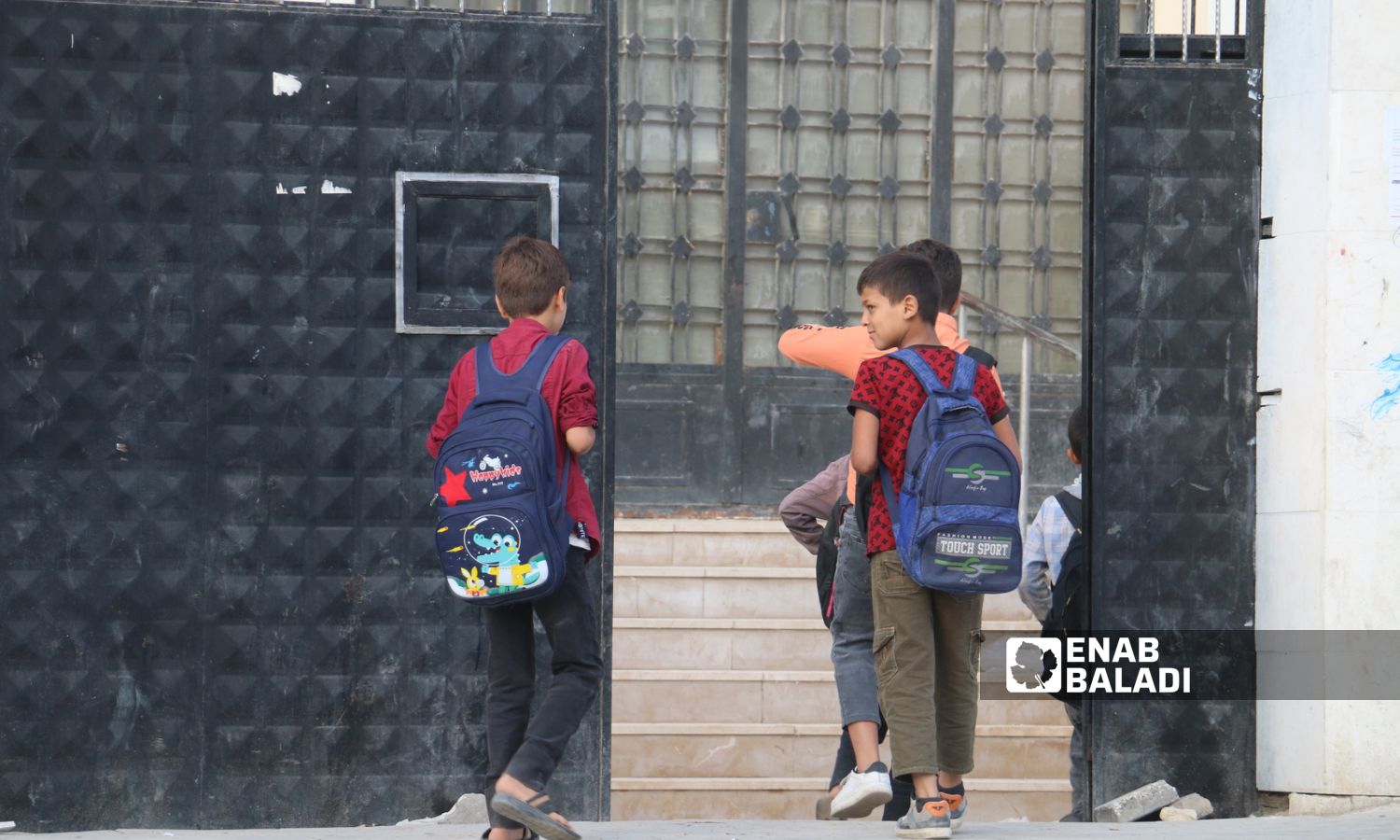In the northern and eastern countryside of Aleppo, areas under the control of the Syrian Interim Government are witnessing a notable trend of both male and female teachers resigning from public schools. This phenomenon stems primarily from the pursuit of a salary that adequately caters to the needs of their families.
According to data obtained by Enab Baladi from Muhammad Sabah Hamidi, the head of the Teachers’ Syndicate in Azaz city, the number of resignations has surpassed 500 since 2023 until the end of February this year.
These resignations follow years of teachers’ pleas at the onset of each semester, urging for salary increases and enhancements to the educational system. Many teachers refuse to settle for partial or temporary solutions such as food assistance or clothing vouchers, deeming them insufficient to address their concerns.
Currently, a single teacher earns 1,750 Turkish liras (approximately 56 US dollars), while a married teacher receives 1,925 liras (about 62 US dollars). However, the recognized poverty threshold stands at 10,843 Turkish liras, with extreme poverty defined at 8,933 liras.
Low salary and lack of reference
Hamidi informed Enab Baladi that the escalating costs of materials coupled with dwindling teacher salaries have had adverse effects on education, resulting in a significant wave of resignations.
He emphasized that the lack of a solid educational framework and an absence of equitable salary standards have compelled over 500 teachers in the northern and eastern countryside of Aleppo to resign. This exodus has severely disrupted the educational process due to the depletion of teaching staff and insufficient capabilities to address pressing needs.
Hamidi noted that teachers have shifted their appeals away from local authorities and education directorates, directing their grievances toward the Turkish government instead. They believe that viable solutions rest with Turkish coordinators rather than local authorities.
Reflecting on his own experience, Hussein al-Khalaf, a former mathematics teacher at Souran High School east of Azaz, cited the inadequate financial assistance provided to teachers, ranging from 70 US dollars to 90 US dollars, as the primary reason for his resignation. He also lamented the lack of clarity in examination decisions, particularly regarding mathematics exams, where questions are often set by education directorates without consideration for student status or school specifics.
Similarly, Mustafa Karkaj, a former teacher at Abdullah Rajab High School in Azaz, cited various accumulated issues prompting his resignation. These included the insufficiency of financial grants provided by the Turkish government, compounded by the grants being issued in Turkish currency amidst soaring prices of essential goods. Karkaj also highlighted systemic weaknesses in the examination process, increased teaching loads, school neglect, and the failure to provide essential educational materials and textbooks.
This article was translated and edited by The Syrian Observer. The Syrian Observer has not verified the content of this story. Responsibility for the information and views set out in this article lies entirely with the author.


